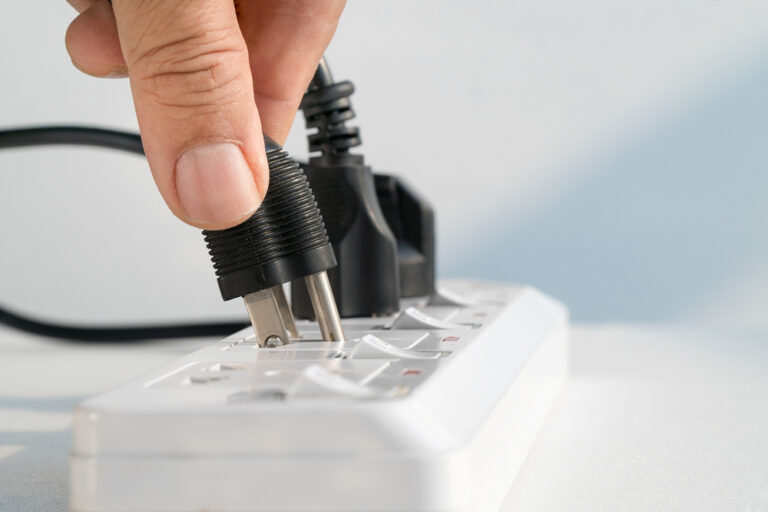by Melissa FOX
Accidents happen, but accidents are avoidable. In the case of fire, there are many things a small business owner can do to prepare for or mitigate the fallout of a serious disaster in the event of a blaze.
As Fire Prevention Officer Lieutenant Jamal Albouy notes, in the case of fire, we “react, as opposed to being proactive. If you have a plan on what to do in the event of an emergency, it’s a matter of just activating that plan and putting into practice.”
The Bermuda Fire Service follows the recommendations of the National Fire Prevention Association in terms of safety, encouraging that Bermudians employ measures like “not overloading electrical outlets, having portable fire extinguishers and knowing where the exits are” as part of their safety and evacuation planning.
SETTING YOUR FIRE SAFETY PLAN
Large or small, in an office building or from a store front, the needs of each small business owner will be unique. However, the suggestions below can be used as a stepping stone for anyone looking to “fire proof” their investments.
- Create an evacuation plan. Small or large, every business should have an actionable evacuation plan in place. This should include which exits to use, how to find them and a muster point that is at a safe distance and easily accessible by both staff and emergency personnel.
- Keep all staff, including part-time or seasonal, informed about your procedures by posting easy-to-follow instructions in high-trafficked areas like the break room. Practice drills on a regular basis. Task supervisors, management and anyone in charge of training to include these safety procedures as part of the new employee basic training.
- Keep stairways and hallways clear of boxes or other supplies. Not only can piles of product or paperwork fuel a fire, but they can also become an obstacle for anyone trying to evacuate.
- Store or dispose of flammable materials in accordance with the manufacturer’s recommendation. Disposing or storing hazardous materials, particularly for a small business, can be a costly expenditure, but it’s necessary to avoid accidents.
Take precautions with your electrical equipment:
- Overloading an electrical outlet can result in tripping the circuit. Especially true in older buildings, there is the potential that overheating the system can cause the insulation to melt and may result in a fire.
- Don’t break off the third prong on a plug to fit a two-prong outlet. The third prong guarantees the system is properly rounded.
- Avoid using extension cords as a permanent solution, as they are designed for temporary use, and store all power cords away from heat, water and oil. Avoid using staples or nails to attach cords to the wall or floor as they may cause damage to the exterior insulation or integrity of the wire within.
- Keep electronic equipment like computers, printers and kitchen appliances far enough apart so air can circulate to keep them cool. Anyone who has worked in a sever environment will understand how much heat can be generated by a machine that is in constant operation and the devastating effects of such equipment overheating.
Depending on the nature of your business, be diligent about regularly inspecting tools, power cords and electrical fittings. Keep equipment well maintained and clean. Repair or replace any damaged equipment before use.
Invest in a solid fire alarm and sprinkler system and keep them in good repair. Equally important, keep your fire extinguisher up to date. Easily one of the most overlooked pieces of equipment, fire extinguishers are vital in keeping small flames from spreading. Make sure you place them in strategic, easily accessible locations, that they are charged and that they are regularly inspected to avoid a misfire in the event of an emergency.
Designate a smoker’s area away from open trash cans or other garbage and provide a safe method to dispose of butts that cannot easily be tipped over.
Reduce your risk of arson. According to the National Fire Prevention Association, arson is one of the leading causes of workplace fires. Ensure that all employees are diligent about locking up, keeping all points of exit clear of obstruction. This is also a case for requiring that garbage be removed every day.
Not mentioned above is the purchase of a comprehensive insurance policy that will cover you in the event of disaster, including fire and other acts of vandalism or the whim of Mother Nature. This will help provide a bit of cushion and may be a little salve in the aftermath, though it will never replace the years of sweat equity you’ve invested in your project. In the same way your unseen labour can bring you financial success, a little investment into safety upfront can save you a lot of woe down the road.

